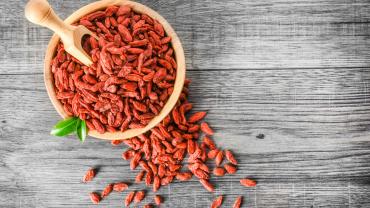
Infertility affects approximately 7.3 million couples in the US; one in seven couples will experience difficulty conceiving. In about 40-50% of these cases, the cause is unknown. It may be related to toxicity, oxidative damage, poor nutritional status or nutritional deficiencies, heavy metal or environmental toxicity, systemic disorders, hormonal imbalances, xenobiotic exposure, age, or obesity.
According to a new review published last week in Andrology, researchers investigated the role of myo-inositol in health and disease and its impact on male fertility.
Inositol acts as second messenger which regulates several hormones such as follicle stimulating hormone (FSH), thyroid-stimulating hormone, and insulin. The male reproductive tract has high concentrations of myo-inositol.
Previous studies have shown that an inositol deficiency is common in individuals with insulin resistance and PCOS. Although inositol is an insulin sensitizing agent commonly used for those with PCOS and insulin resistance, it also is involved in reestablishing menstrual regularity and ovulation, and studies have shown inositol to be important in female infertility. Since inositol plays a role in the regulation of FSH, it is critical for FSH signaling, oocyte maturation, and embryo development. Oocyte and embryo quality is considered to be the main challenge of in vitro fertilization (IVF) in assisted reproduction. Inositol is safe, inexpensive, and can provide a clinically significant approach to women with fertility issues.
This new review evaluated several human clinical studies using inositol supplementation in patients with seminal abnormalities, idiopathic infertility, metabolic syndrome, and in healthy men. Patients who were administered inositol demonstrated significant improvements in sperm quality, including increases in sperm concentration, count, and motility. Also, decreases were seen in DNA fragmentation (which measures the amount of damaged DNA in sperm). In one randomized controlled trial, myo-inositol’s impact on sperm performance in IVF treatment was assessed. Results showed a higher fertilization rate and increased percentage of quality embryos at day three of the study. In addition, pregnancies occurred only in the myo-inositol group, demonstrating the effectiveness of the supplementation.
Other nutrients that may have a beneficial impact on fertility include vitamin D, fish oil, carnitine, zinc, and CoQ10.
Exposure to endocrine-disrupting chemicals (EDCs) including bisphenol A (BPA), phthalates, PCBs, PBBs, PBDEs, pesticides, and heavy metals can also contribute to infertility. It is important to minimize exposure to EDCs by consuming organic produce, drinking filtered water, using household products that are fragrance-free and free of phthalates and BPA, and replacing non-stick pans with glass, ceramic, or cast iron. Nutrients that can support detoxification pathways include n-acetyl-cysteine, glutathione, calcium D-glucarate, milk thistle, and sulforaphane.
By Michael Jurgelewicz, DC, DACBN, DCBCN, CNS